New Video On The Hubble Sequence! Had A Lot Of Fun Making This One, Enjoy!
New video on the Hubble Sequence! Had a lot of fun making this one, enjoy!
More Posts from Smartler and Others

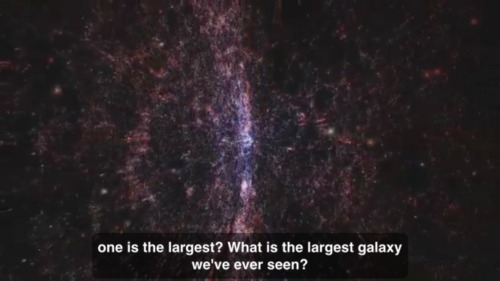
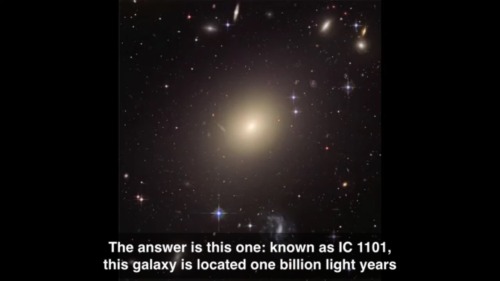
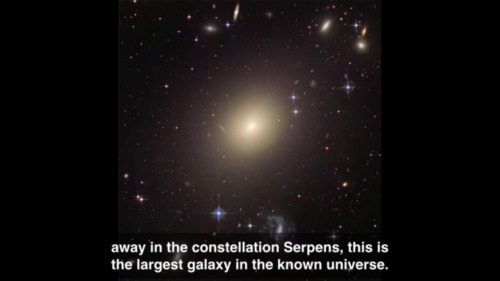
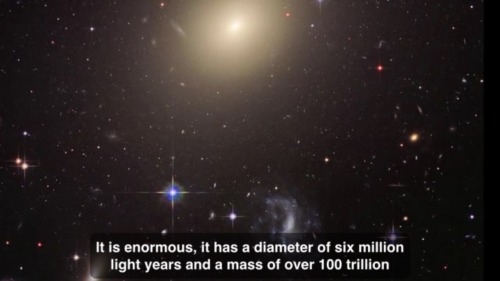
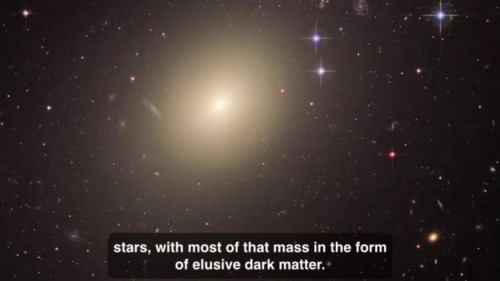
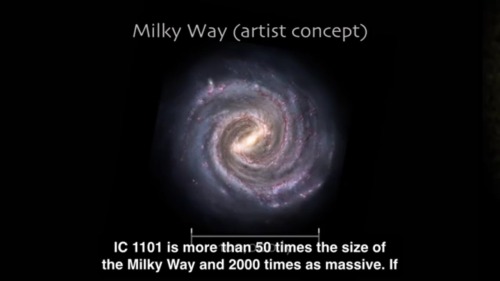
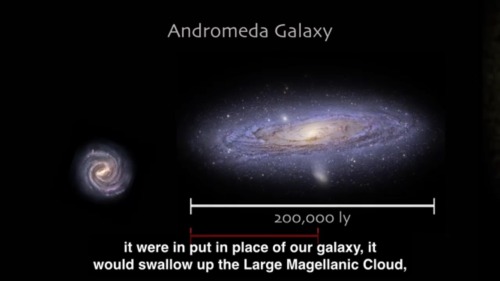
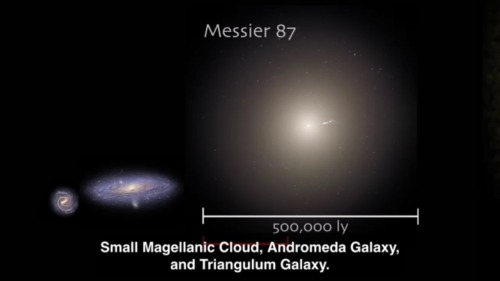
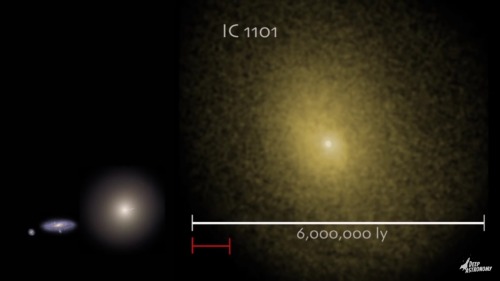
“IC 1101 has spent most of its life colliding with other galaxies and owes its size to these collisions. Over billions of years, galaxies about the size of the Milky Way and Andromeda, have been merging together to sculpt and shape this titan of the cosmos. This galaxy is bereft of star making gases, here rapid star formation has long ago ceased.
IC 1101 is dying a slow death. While not entirely devoid of new stars, unless it continues to merge with newer younger galaxies, IC 1101 will slowly fade to oblivion.”
[[ http://youtu.be/UE8yHySiJ4A ]]



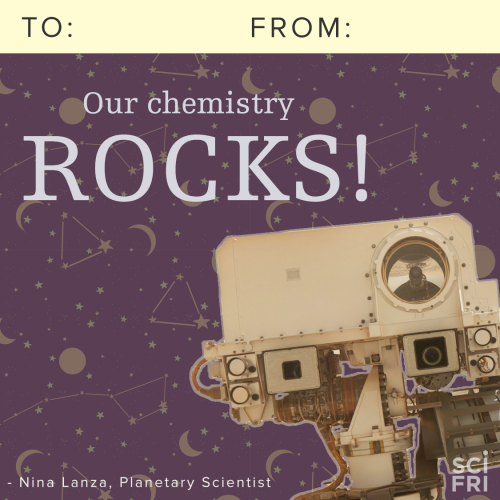



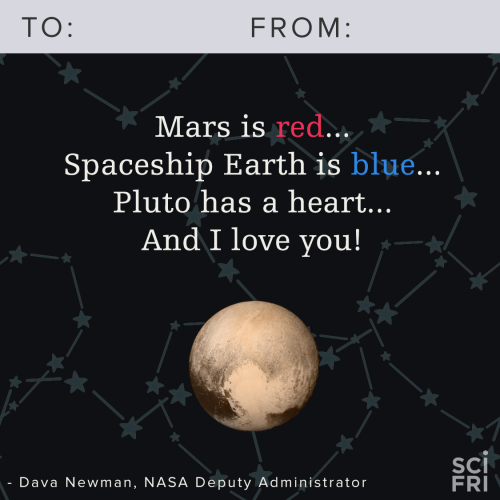
💕 We made you some scientific valentines because we love you. 💕
And yes, you can print them out for the geeks in your life.
EVERYTIME IT’S ON MY DASHBOARD I WATCH IT AND CRY BEST VIDEO
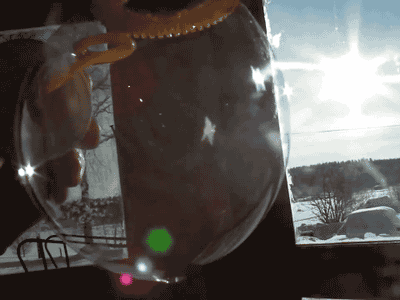
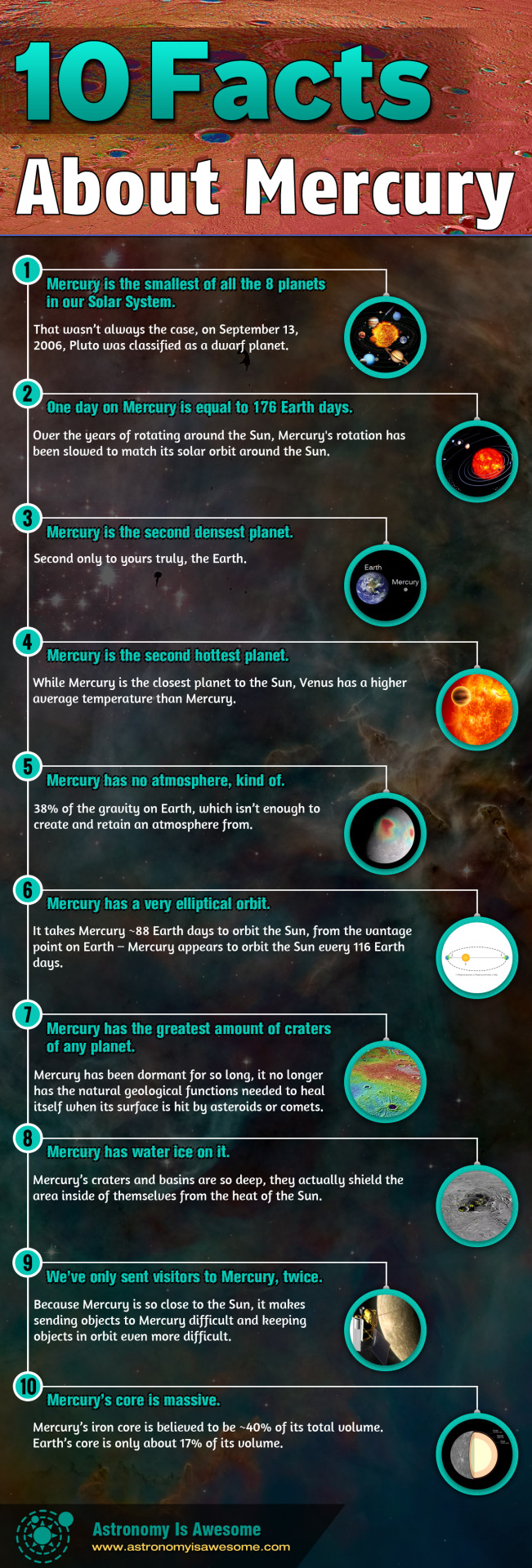
Check out our 10 Facts About Mercury #Infographic!
http://astronomyisawesome.com/infographics/10-facts-about-mercury/
With #Mercury being the closest planet to the Sun, it’s very difficult to send spacecraft there to visit it, gather information and relay that back to us here on Earth. Nonetheless, we compiled all we know into this awesome infographic!

how people in Medicine flirt
Seduce me with science puns

(photo by mrmailbox)
What Are the Bright Spots on Ceres?

Dwarf planet Ceres has more than 130 bright areas, and most of them are associated with impact craters. Now, Ceres has revealed some of its well-kept secrets in two new studies in the journal Nature, thanks to data from our Dawn spacecraft.
Two studies have been looking into the mystery behind these bright areas. One study identifies this bright material as a kind of salt, while the other study suggests the detection of ammonia-rich clays.
Study authors write that the bright material is consistent with a type of magnesium sulfate called hexahydrite. A different type of magnesium sulfate is familiar on Earth as Epsom salt.

Researchers, using images from Dawn’s framing camera, suggest that these salt-rich areas were left behind when water-ice sublimated in the past. Impacts from asteroids would have unearthed the mixture of ice and salt.
An image of Occator Crater (below) shows the brightest material on Ceres. Occator itself is 60 miles in diameter, and its central pit, covered by this bright material, measures about 6 miles wide. With its sharp rim and walls, it appears to be among the youngest features on the dwarf planet.

In the second nature study, members of the Dawn science team examined the composition of Ceres and found evidence for ammonia-rich clays. Why is this important?
Well, ammonia ice by itself would evaporate on Ceres today, because it is too warm. However, ammonia molecules could be stable if present in combination with other minerals. This raises the possibility that Ceres did not originate in the main asteroid belt between Mars and Jupiter, where it currently resides. But instead, might have formed in the outer solar system! Another idea is that Ceres formed close to its present position, incorporating materials that drifted in from the outer solar system, near the orbit of Neptune, where nitrogen ices are thermally stable.

As of this week, our Dawn spacecraft has reached its final orbital altitude at Ceres (about 240 miles from the surface). In mid-December, it will begin taking observations from this orbit, so be sure to check back for details!
ake sure to follow us on Tumblr for your regular dose of space: http://nasa.tumblr.com
-
 karinasanna liked this · 8 years ago
karinasanna liked this · 8 years ago -
 lazycatkimi-blog reblogged this · 8 years ago
lazycatkimi-blog reblogged this · 8 years ago -
 lazycatkimi-blog liked this · 8 years ago
lazycatkimi-blog liked this · 8 years ago -
 lutefisk-kingdom liked this · 8 years ago
lutefisk-kingdom liked this · 8 years ago -
 follow-the-star liked this · 8 years ago
follow-the-star liked this · 8 years ago -
 tantricsacha liked this · 8 years ago
tantricsacha liked this · 8 years ago -
 the-light-galactic-blog liked this · 9 years ago
the-light-galactic-blog liked this · 9 years ago -
 feoandtheaquanauts liked this · 9 years ago
feoandtheaquanauts liked this · 9 years ago -
 dboy42 reblogged this · 9 years ago
dboy42 reblogged this · 9 years ago -
 dboy42 liked this · 9 years ago
dboy42 liked this · 9 years ago -
 321-blast-off liked this · 9 years ago
321-blast-off liked this · 9 years ago -
 smartler reblogged this · 9 years ago
smartler reblogged this · 9 years ago -
 thethirdman8 liked this · 9 years ago
thethirdman8 liked this · 9 years ago -
 gameandover-blog liked this · 9 years ago
gameandover-blog liked this · 9 years ago -
 patton2004 reblogged this · 9 years ago
patton2004 reblogged this · 9 years ago -
 patton2004 liked this · 9 years ago
patton2004 liked this · 9 years ago -
 thunderstrike64 liked this · 9 years ago
thunderstrike64 liked this · 9 years ago -
 the-peacock-on-fire-blog liked this · 9 years ago
the-peacock-on-fire-blog liked this · 9 years ago -
 parfaitstar reblogged this · 9 years ago
parfaitstar reblogged this · 9 years ago -
 parfaitstar liked this · 9 years ago
parfaitstar liked this · 9 years ago -
 astrodani liked this · 9 years ago
astrodani liked this · 9 years ago -
 draokos liked this · 9 years ago
draokos liked this · 9 years ago -
 joshuatmason liked this · 9 years ago
joshuatmason liked this · 9 years ago -
 kukaolet liked this · 9 years ago
kukaolet liked this · 9 years ago -
 letsraiseourvibrations liked this · 9 years ago
letsraiseourvibrations liked this · 9 years ago -
 tastes-like-hellfire reblogged this · 9 years ago
tastes-like-hellfire reblogged this · 9 years ago -
 tastes-like-hellfire liked this · 9 years ago
tastes-like-hellfire liked this · 9 years ago -
 n-e-r-d-z-e-n-z-u-a-l liked this · 9 years ago
n-e-r-d-z-e-n-z-u-a-l liked this · 9 years ago -
 habitablespace liked this · 9 years ago
habitablespace liked this · 9 years ago -
 mifhortunach liked this · 9 years ago
mifhortunach liked this · 9 years ago -
 thing-plus-stuff liked this · 9 years ago
thing-plus-stuff liked this · 9 years ago -
 fire-affinitive-phoenix-blog reblogged this · 9 years ago
fire-affinitive-phoenix-blog reblogged this · 9 years ago -
 fire-affinitive-phoenix-blog liked this · 9 years ago
fire-affinitive-phoenix-blog liked this · 9 years ago -
 kmdn7-blog liked this · 9 years ago
kmdn7-blog liked this · 9 years ago -
 clemdem liked this · 9 years ago
clemdem liked this · 9 years ago -
 serendipityschild reblogged this · 9 years ago
serendipityschild reblogged this · 9 years ago -
 serendipityschild liked this · 9 years ago
serendipityschild liked this · 9 years ago -
 apiercedhunter reblogged this · 9 years ago
apiercedhunter reblogged this · 9 years ago -
 smartler liked this · 9 years ago
smartler liked this · 9 years ago